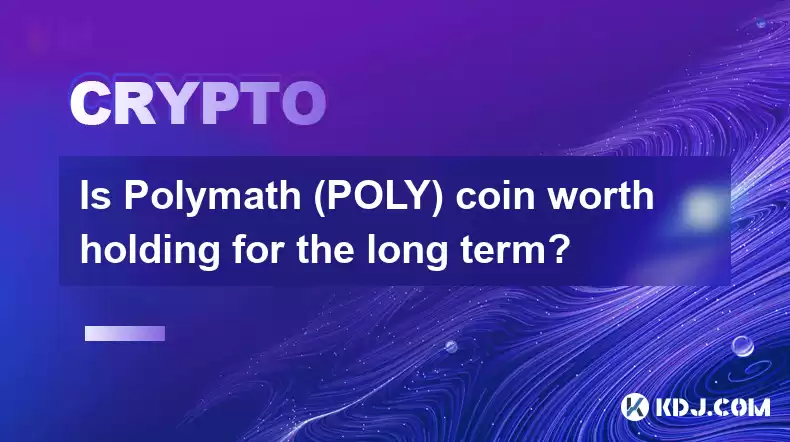-
 Bitcoin
Bitcoin $117600
0.25% -
 Ethereum
Ethereum $4424
0.10% -
 XRP
XRP $3.101
0.50% -
 Tether USDt
Tether USDt $1.001
-0.01% -
 BNB
BNB $836.2
1.26% -
 Solana
Solana $188.8
2.11% -
 USDC
USDC $1.000
0.01% -
 Dogecoin
Dogecoin $0.2301
0.57% -
 TRON
TRON $0.3485
-1.00% -
 Cardano
Cardano $0.9209
-1.34% -
 Hyperliquid
Hyperliquid $46.72
-1.19% -
 Chainlink
Chainlink $22.62
4.84% -
 Stellar
Stellar $0.4275
-0.38% -
 Sui
Sui $3.761
1.91% -
 Bitcoin Cash
Bitcoin Cash $586.7
-0.25% -
 Ethena USDe
Ethena USDe $1.001
0.01% -
 Hedera
Hedera $0.2510
2.06% -
 Avalanche
Avalanche $24.21
2.22% -
 Litecoin
Litecoin $119.7
1.07% -
 Toncoin
Toncoin $3.450
1.06% -
 UNUS SED LEO
UNUS SED LEO $9.411
-0.93% -
 Shiba Inu
Shiba Inu $0.00001298
1.20% -
 Uniswap
Uniswap $10.98
3.25% -
 Polkadot
Polkadot $3.961
2.16% -
 Dai
Dai $1.000
0.00% -
 Bitget Token
Bitget Token $4.642
0.95% -
 Cronos
Cronos $0.1514
0.57% -
 Ethena
Ethena $0.7290
3.78% -
 Monero
Monero $254.1
7.69% -
 Pepe
Pepe $0.00001102
2.47%
Is Polymath (POLY) coin worth holding for the long term?
Polymath, a security token platform built on Ethereum, aims to simplify the issuance, management, and trading of security tokens through its native POLY token.
Dec 26, 2024 at 06:22 am

Key Points
- Polymath (POLY) is a security token platform built on the Ethereum blockchain.
- Polymath aims to make it easy for companies to issue and manage security tokens, and for investors to buy, sell, and trade them.
- POLY is the native token of the Polymath platform, and it is used to pay for fees on the network.
- Polymath has a strong team and a growing ecosystem of partners.
- The future of Polymath looks bright, as the security token market is expected to grow significantly in the coming years.
Detailed Analysis
1. What is Polymath?
Polymath is a security token platform built on the Ethereum blockchain. Security tokens are a new type of digital asset that represents ownership in a real-world asset, such as a stock, bond, or real estate. Polymath makes it easy for companies to issue and manage security tokens, and for investors to buy, sell, and trade them.
2. How Does Polymath Work?
Polymath uses a decentralized network of nodes to process and validate transactions. This network is secured by the Ethereum blockchain, which makes it very resistant to fraud and hacking.
Companies that want to issue security tokens on Polymath must first create a security token offering (STO). An STO is similar to an initial public offering (IPO), but it is conducted using security tokens instead of traditional stocks.
Investors who want to buy security tokens can do so through a Polymath-approved broker-dealer. Polymath also offers a secondary market where investors can buy and sell security tokens that have already been issued.
3. What is the Polymath Token (POLY)?
POLY is the native token of the Polymath platform. It is used to pay for fees on the network, such as transaction fees, listing fees, and withdrawal fees. POLY can also be used to stake on the network, which helps to secure the network and earn rewards.
4. The Polymath Team
Polymath has a strong team of experienced professionals. The team includes former executives from Goldman Sachs, JPMorgan, and Credit Suisse.
5. The Polymath Ecosystem
Polymath has a growing ecosystem of partners that includes exchanges, custodians, and broker-dealers. This ecosystem is essential for the growth of the Polymath platform, as it provides a way for companies to issue security tokens and for investors to buy and sell them.
6. The Future of Polymath
The future of Polymath looks bright, as the security token market is expected to grow significantly in the coming years. Polymath is well-positioned to capitalize on this growth, as it has a strong team, a growing ecosystem of partners, and a proven track record of success.
FAQs
1. Is Polymath a good investment?
POLY is a high-risk investment, but it also has the potential to be very rewarding. The future of Polymath depends on the growth of the security token market. If the security token market grows as expected, then POLY could become a very valuable asset.
2. What is the price of POLY?
The price of POLY fluctuates constantly, but it is currently trading at around $0.04.
3. Where can I buy POLY?
POLY can be bought on a variety of cryptocurrency exchanges, including Binance, Huobi, and OKEx.
Disclaimer:info@kdj.com
The information provided is not trading advice. kdj.com does not assume any responsibility for any investments made based on the information provided in this article. Cryptocurrencies are highly volatile and it is highly recommended that you invest with caution after thorough research!
If you believe that the content used on this website infringes your copyright, please contact us immediately (info@kdj.com) and we will delete it promptly.
- Kazakhstan's Crypto Leap: Bitcoin ETF and Central Asia's Digital Finance Future
- 2025-08-13 12:45:19
- BlockDAG Presale Blazes Past $371M: Fundraising Frenzy Fuels Crypto Sensation
- 2025-08-13 13:05:21
- Meme Coins: Chasing the 2025 Surge – Which Will Moonshot?
- 2025-08-13 10:25:23
- Bitcoin's Wild Ride: Rally, Pullback, and What's Next
- 2025-08-13 10:25:23
- Bitcoin, Bitmax, and Institutional Demand: A New Era of Crypto Investment
- 2025-08-13 10:45:12
- Solana, ROAM, and Airdrops: What's the Buzz in 2025?
- 2025-08-13 11:35:13
Related knowledge

How to purchase Aragon (ANT)?
Aug 09,2025 at 11:56pm
Understanding Aragon (ANT) and Its PurposeAragon (ANT) is a decentralized governance token that powers the Aragon Network, a platform built on the Eth...

Where to trade Band Protocol (BAND)?
Aug 10,2025 at 11:36pm
Understanding the Role of Private Keys in Cryptocurrency WalletsIn the world of cryptocurrency, a private key is one of the most critical components o...

What is the most secure way to buy Ocean Protocol (OCEAN)?
Aug 10,2025 at 01:01pm
Understanding Ocean Protocol (OCEAN) and Its EcosystemOcean Protocol (OCEAN) is a decentralized data exchange platform built on blockchain technology,...

How to invest in Kyber Network Crystal v2 (KNC)?
Aug 12,2025 at 05:21pm
Understanding Kyber Network Crystal v2 (KNC)Kyber Network is a decentralized liquidity hub built on the Ethereum blockchain that enables instant token...

Where can I buy UMA (UMA)?
Aug 07,2025 at 06:42pm
Understanding UMA and Its Role in Decentralized FinanceUMA (Universal Market Access) is an Ethereum-based decentralized finance (DeFi) protocol design...

How to sell my Ren (REN) tokens?
Aug 13,2025 at 11:35am
Understanding REN Tokens and Their Role in Decentralized FinanceREN is an ERC-20 token that powers the Ren protocol, a decentralized interoperability ...

How to purchase Aragon (ANT)?
Aug 09,2025 at 11:56pm
Understanding Aragon (ANT) and Its PurposeAragon (ANT) is a decentralized governance token that powers the Aragon Network, a platform built on the Eth...

Where to trade Band Protocol (BAND)?
Aug 10,2025 at 11:36pm
Understanding the Role of Private Keys in Cryptocurrency WalletsIn the world of cryptocurrency, a private key is one of the most critical components o...

What is the most secure way to buy Ocean Protocol (OCEAN)?
Aug 10,2025 at 01:01pm
Understanding Ocean Protocol (OCEAN) and Its EcosystemOcean Protocol (OCEAN) is a decentralized data exchange platform built on blockchain technology,...

How to invest in Kyber Network Crystal v2 (KNC)?
Aug 12,2025 at 05:21pm
Understanding Kyber Network Crystal v2 (KNC)Kyber Network is a decentralized liquidity hub built on the Ethereum blockchain that enables instant token...

Where can I buy UMA (UMA)?
Aug 07,2025 at 06:42pm
Understanding UMA and Its Role in Decentralized FinanceUMA (Universal Market Access) is an Ethereum-based decentralized finance (DeFi) protocol design...

How to sell my Ren (REN) tokens?
Aug 13,2025 at 11:35am
Understanding REN Tokens and Their Role in Decentralized FinanceREN is an ERC-20 token that powers the Ren protocol, a decentralized interoperability ...
See all articles

























































































